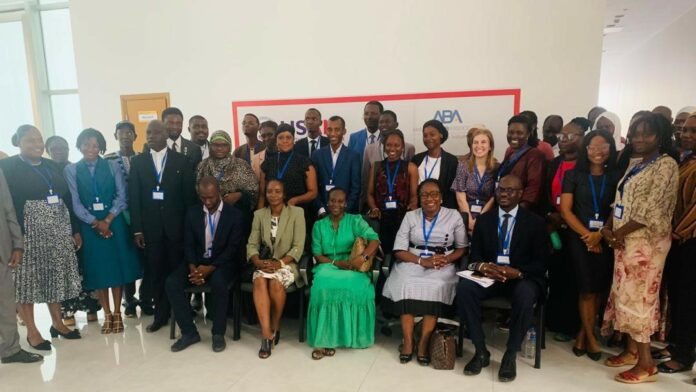By: Zackline Colley
The National Agency for Legal Aid (NALA), with support from the American Bar Association through the Promoting Rights and Justice in The Gambia (PRJ) activity, a USAID-funded project, successfully concluded a two-day multi-stakeholder round table conference on May 20th and 21st. The event focused on enhancing access to legal services through improved coordination and collaboration among legal aid providers.
The conference aimed to assess the current status of access to justice in The Gambia, emphasizing the crucial role of legal aid in transitional justice and the implementation of post-Truth, Reconciliation, and Reparations Commission (TRRC) recommendations. Participants engaged in in-depth discussions on the significant and ongoing unmet needs of justice seekers, particularly the most vulnerable members of society, and explored ways to ensure compliance with international standards.
Key stakeholders from various sectors, including government agencies, non-governmental organizations, civil society, and international partners, attended the conference. Their collaborative efforts highlighted the importance of a unified approach to legal aid provision and identified strategies for overcoming existing challenges in the justice system.
NALA Board Member M, John Charles Njie, remarked, “This conference provided a vital platform for stakeholders to engage in meaningful dialogue and share insights on improving legal aid services. Our discussions have reinforced the need for a cohesive and collaborative effort to ensure that justice is accessible to all, particularly the marginalized and vulnerable populations.”
The conference underscored the role of legal aid in the broader context of transitional justice, focusing on how legal support can facilitate the implementation of TRRC recommendations. Participants examined the barriers faced by justice seekers and proposed actionable solutions to address these challenges, emphasizing the importance of sustained efforts and international cooperation.
Representatives from the American Bar Association and USAID highlighted their commitment to supporting initiatives that promote justice and human rights in The Gambia. They commended the collaborative spirit of the conference and expressed optimism about the future of legal aid in the country.
As the conference drew to a close, stakeholders agreed on a set of recommendations aimed at improving legal aid services. These included enhancing capacity-building initiatives for legal aid providers, increasing public awareness about available legal services, and fostering stronger partnerships between government and civil society organizations.
The successful conclusion of this round table conference marks a significant step towards a more coordinated and effective legal aid system in The Gambia, paving the way for a justice system that is more accessible and equitable for all citizens.




